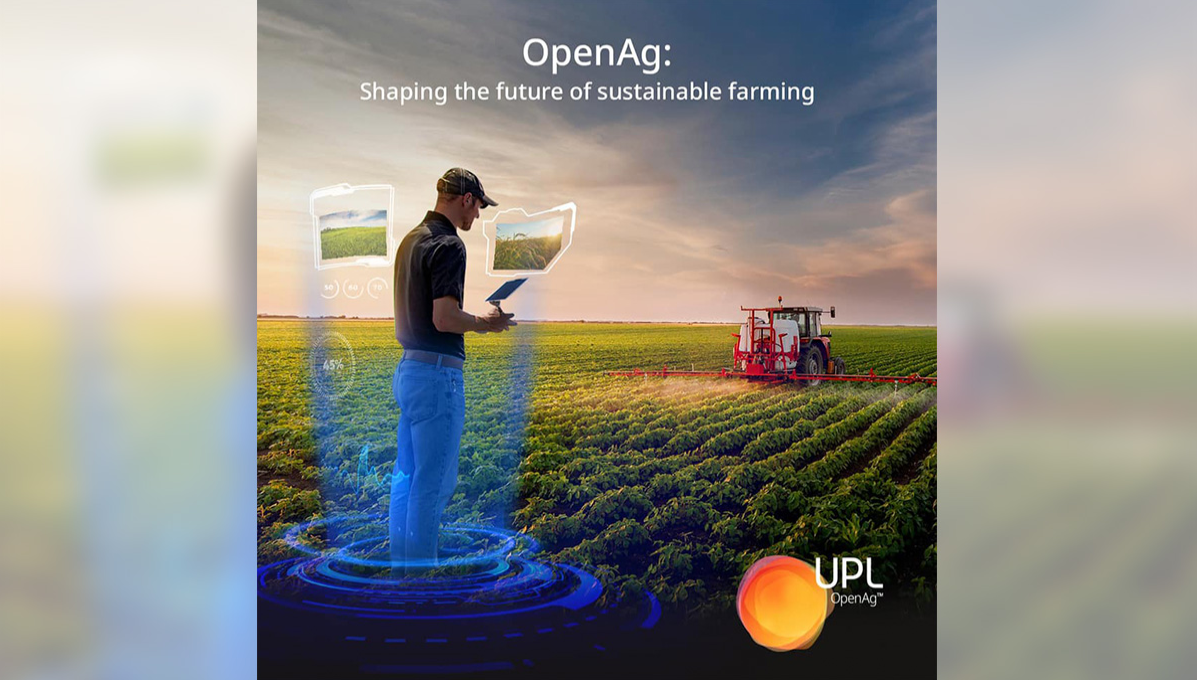Food is vital to our survival and any planning for the future requires prioritizing it. A growing world needs a growing food source that not just meets the needs of people but does so in a sustainable way. Currently, there are 7 billion people and global food security remains a challenge. Before the close of the century, there will be 11 billion people on the planet who will eat 33 billion meals a day. 500 million farmers have to meet this need along with multiple other players in the food system. There is a need for sustainability at every step of the food value chain and we wanted to unite all stakeholders for a single purpose with a holistic approach that can accelerate transformation and change agriculture globally. This is OpenAg.
OpenAg is an agriculture network to make it possible to feed the world’s population and providing food security and safety to all. Open initiatives remove borders to provide greater opportunities and create value for everyone who needs it. Sustainability has always been the focus of UPL and now NPP because the future requires using the resources at our disposal that doesn’t deplete them but rather leaves room for us to grow. OpenAg is much more than just providing education and informing farmers about sustainable farming methods, it blends together innovation, technology, environment, and people to change the game. Here’s how:
OpenIntelligence
Technology has made it possible to capture and analyze data in a multitude of ways. From tracking the latest economic indicators to global trends and consumer insights, we make smart use of technology to understand what our partners want and what they need so we can continue to improve our products and services for them and lead the change in sustainable farming practices with data. One of our initiatives that provides farmers with access to education about new technologies includes Trust++ in Latin America, an integrated platform for banana growers. Read more here >
OpenMarkets
While we seize the opportunities that come our way, we can also create new opportunities to fuel sustainable growth across the global food network. We found that Mexico was the leading exporter of agricultural products from Latin American countries. Keeping this in mind, we created ‘Pasaporta Verde’, Green Passport products in collaboration with Global Gap which would ensure that global standards were met and exports could take place. Read more here >
OpenHearts
Socioeconomic realities across the globe have created inequalities that not just impact growers but also the society we are a part of, directly or indirectly. We collaborate with people, organizations, and governments to make sustainable growth possible for all, no matter what lives they might lead. Our initiatives for this date back to 1972 with the opening of Sandra Shroff Gnyan Dham School at Vapi in Gujarat, India, the location of UPL’s first manufacturing unit. The school has a student population of 1500+ and serves as a benchmark for quality education in the area. UPL has also worked with Mrs Sandra Shroff for many other such initiatives in India that include skill development centres, women self-help groups, and village transformation programs. Read more here >
OpenCollaboration
When more people come together, we can achieve more. With an open agriculture network aimed to promote connections and working together in new ways, we can overcome challenges and create opportunities that might otherwise not have been possible. We designed BANZAI, the first proven chemical biostimulant foliar spray especially for cocoa, in collaboration with Croda International Plc that could benefit thousands of small-hold farmers in West African countries that account for more than 70% of the world’s cocoa production. It played a key part in improving the sustainability of cocoa production as it improves the yield but is also environmentally non-toxic and benign. Read more here >
OpenInnovation
Limitless collaboration makes finding solutions faster and more efficient. A global food network enables innovation by providing access to the newest thinking, technology, and R&D in agriculture, biosolutions, and more to meet the needs of growers, food producers, and consumers. Our patented starch-based smart climate technology, Zeba, is one of the results of this. Zeba was adopted by PepsiCo as a part of their water conservation initiatives, which showed 11 - 20% water saving per ton of potatoes grown, along with many other benefits. Read more here >
OpenAccess
The fixed linear food chains of the past were limited in flexibility, providing little opportunity for growth. With a fluid open access network, both existing and new connections are made easier and faster. Our network with partners allows us to transform farming across wide areas. We provided a value-addition to growers with drones, Unmanned Aerial Vehicles (UAVs), and other aerial/vision technologies that could monitor the crop at different stages and make advanced recommendations at an earlier stage. This initiative was launched in South Africa and rolled out worldwide. Read more here >
UPL has also opened the OpenAg Center in the United States to provide a home for agricultural innovation in all its forms. In the spirit of removing barriers, UPL also welcomes collaboration for progressive technologies from anyone who wants to create a significant positive impact in food production. We welcome new projects that align with our goals to bring the benefits of sustainable agriculture to more people. The open agriculture initiative can make the ethos of sustainability an even more integral part of all steps of the food value chain in the years to come, which would be a win for all.
